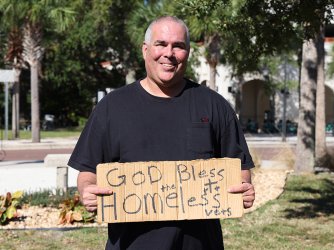Table of Contents
Texas bill targeting ‘Diversity, Equity, and Inclusion’ restricts student speech and is unconstitutional

Shutterstock.com
The American and Texas state flags flying on the dome of the Texas State Capitol building in Austin, where lawmakers will consider a bill that will eliminate DEI offices at public colleges and universities.
A bill filed in the Texas legislature ahead of the state’s 2023 session needs substantial reworking to pass constitutional muster.
House Bill 1006 seeks to eliminate “Diversity, Equity and Inclusion” offices at public colleges and universities in the state. The bill requires those institutions to adopt a policy to prohibit “the funding, promotion, sponsorship or support of”:
(i) any office of diversity, equity, and inclusion; and
(ii) any office that funds, promotes, sponsors, or supports an initiative or formulation of diversity, equity, and inclusion beyond what is necessary to uphold the equal protection of the laws under the Fourteenth Amendment to the United States Constitution.
FIRE has no position on state funding for administrative DEI efforts at higher education institutions, provided that such restrictions do not undermine academic freedom. But without further clarity, both sections (i) and (ii) above could be read to prohibit academic offices from spending funds to support — including through research, classroom discussions, or sponsorship of events — various DEI programming, which would threaten academic freedom. Both sections should be amended to make clear that the prohibition on spending is limited to administrative departments, not academic departments.
However, the bill includes other provisions — some positive, and some unconstitutional — affecting free expression on campus.
First, the good: The bill contains provisions that seek to protect student expression and faculty academic freedom rights.
HB 1006 would amend the Texas Education Code to add that “each institution of higher education has the general responsibility to . . . foster a diversity of viewpoints.”
If the leaders of Texas’ public colleges and universities make efforts to advance viewpoint diversity on their campuses, students and faculty will be more likely to grapple with competing ideas and interact with people who think differently than they do. This enriches the academic experience and helps to foster a free speech culture on campus, longstanding goals of FIRE.
There may be constitutionally sound legislative solutions — that do not threaten free speech and free inquiry on campus — to reign in DEI efforts that impinge on free speech or function as political litmus tests, but HB 1006 in its current form does not meet the mark.
The bill also helpfully includes academic freedom protections for faculty members by adding “published or unpublished faculty research, lectures, writing, or commentary” to a list of statutorily protected expressive activity.
Now, the not-good: The bill’s language would undermine at least one of these worthwhile provisions. In a section on student expressive rights, the bill requires institutions to adopt a policy that prohibits students from “endorsement or dissuasion” of a particular religion, lifestyle, or culture. It reads:
Each institution of higher education shall adopt a policy detailing students’ rights and responsibilities regarding expressive activities at the institution. The policy must:
[ . . . ]
2) prohibit:
[ . . . ]
(B) the endorsement or dissuasion of, or interference with, any lifestyle, race, sex, religion, or culture.
This language unconstitutionally prohibits student expression instead of protecting it.
For one example of many, this provision would prevent Christian students from proclaiming their love for Jesus Christ on campus. Because it would ban “endorsing” any “lifestyle,” it would presumably bar students at Texas A&M from invoking the university’s code of honor: “An Aggie does not lie, cheat, or steal or tolerate those who do.”

FIRE Statement on the Use of Diversity, Equity, and Inclusion Criteria in Faculty Hiring and Evaluation
Statements & Policies
Vague or ideologically motivated DEI statement policies can too easily function as litmus tests for adherence to prevailing ideological views on DEI.
Even if the bill were drafted with the intent to limit institutions from endorsing certain positions, the prohibitions are vague and overly broad. For instance, does it make sense for an institution to be prohibited from endorsing “lifestyles” — such as those promoting academic integrity, mental and physical well-being, or public service? Relatedly, what does it mean for an institution to prohibit “interference” with lifestyle, race, sex, religion, or culture?
FIRE is well aware of the excesses of DEI efforts at colleges and universities across the country, from race-segregated campus events to the McCarthy-esque rise of mandatory DEI statements for faculty hiring and promotion. In those instances, FIRE has come to the defense of free expression and freedom of conscience. Like FIRE’s litigation against Florida’s HB 7 shows, if legislatures want to tackle perceived excesses of DEI programming or on campus, they must do so in a way that does not violate the First Amendment.
There may be constitutionally sound legislative solutions — that do not threaten free speech and free inquiry on campus — to reign in DEI efforts that impinge on free speech or function as political litmus tests, but HB 1006 in its current form does not meet the mark. While this bill includes some positive provisions, an unconstitutional mixed bag is still unconstitutional. This bill requires significant revisions to pass constitutional muster, and FIRE will work to ensure that the bill does not pass in its current form.
Recent Articles
FIRE’s award-winning Newsdesk covers the free speech news you need to stay informed.


FIRE Statement: X Corp's lawsuit and Texas's investigation into Media Matters for America are deeply misguided

Anonymous speech is as American as apple pie


